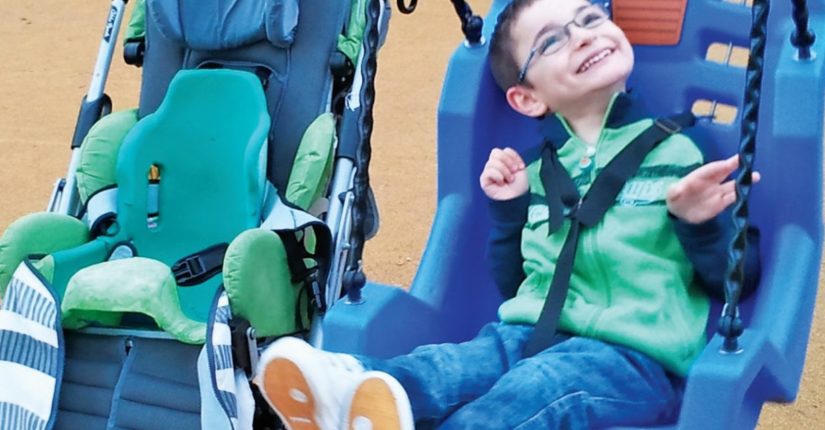
A DISABILITY DOES not stop anyone from living a meaningful life or achieving success in many fields. It doesn’t define who a person is, or what they are capable of. We all have strengths, we all have weaknesses, and we all require varying degrees of support to achieve goals.
Yet disability is one of those topics that many people don’t like talking about. It’s often the cause of stifling silences, hushed whispers and pointed stares – all reactions that are very much rooted in fear. It’s one of those things where we worry we’ll say or do the wrong thing, and cause offence.
The reality is that disability is a complex topic. There are thousands of different conditions – many wrapped up in horribly complicated medical jargon – and even people with the same condition respond to it differently. Some disabilities are obvious, some are not, and some take a long time to get diagnosed.
I have Complex Regional Pain Syndrome, or CRPS for short. Thanks to faulty wiring in my nervous system I am in chronic pain in both my feet all the time, which affects and limits my ability to walk. My condition started at the age of eleven, got much worse at thirteen, and was finally diagnosed at sixteen.
And it was terrifying. In a world which prizes perfection I was frightened that my disability would be the defining thing about me. That other people wouldn’t be able to see past my crutches and wheelchair to the person that lay underneath and the value I had to offer.
What made this a million times worse was that people like me weren’t represented in the world around me. Very few high achieving, successful disabled people made it onto the pages of books or were pictured in illustrations. I couldn’t find them on the TV, in magazines or other forms of media. Instead people with disabilities were embroiled in stories around ethical dilemmas, victimised, pitied, misunderstood – or left off completely.
These messages have huge implications.
Underrepresentation and misrepresentation of disability have a profound effect on how we value and identify it. These messages – or lack of them – changed the way I saw myself and the big ambitions I held for my future. I was different, and different is sometimes a very lonely place to be.
It also changes how others see disability. It gives people a skewed vision of a hidden world that paints disability as a problem. Of course, disability does raise additional challenges. Children with disabilities need extra support in certain areas, which can be more demanding on your time or require further training.
It might even get you questioning whether you’re up to the task of fostering a child with additional needs.
The only way to break down this fear is through education. Starting conversations that challenge outdated stereotypes and misunderstandings are essential to this. And please remember, it’s okay not to have all the answers. It’s okay to feel uncomfortable, and it’s okay to get it wrong. Only by doing this can we start to learn and grow.
Understanding starts with an openness to learn.
At Fostering Families we want to explore, inspire and educate, giving you first-hand insight into the world of disability and how you can best support children and young people with additional needs. Today we’re going to start that conversation with three tips to demystify disability.
